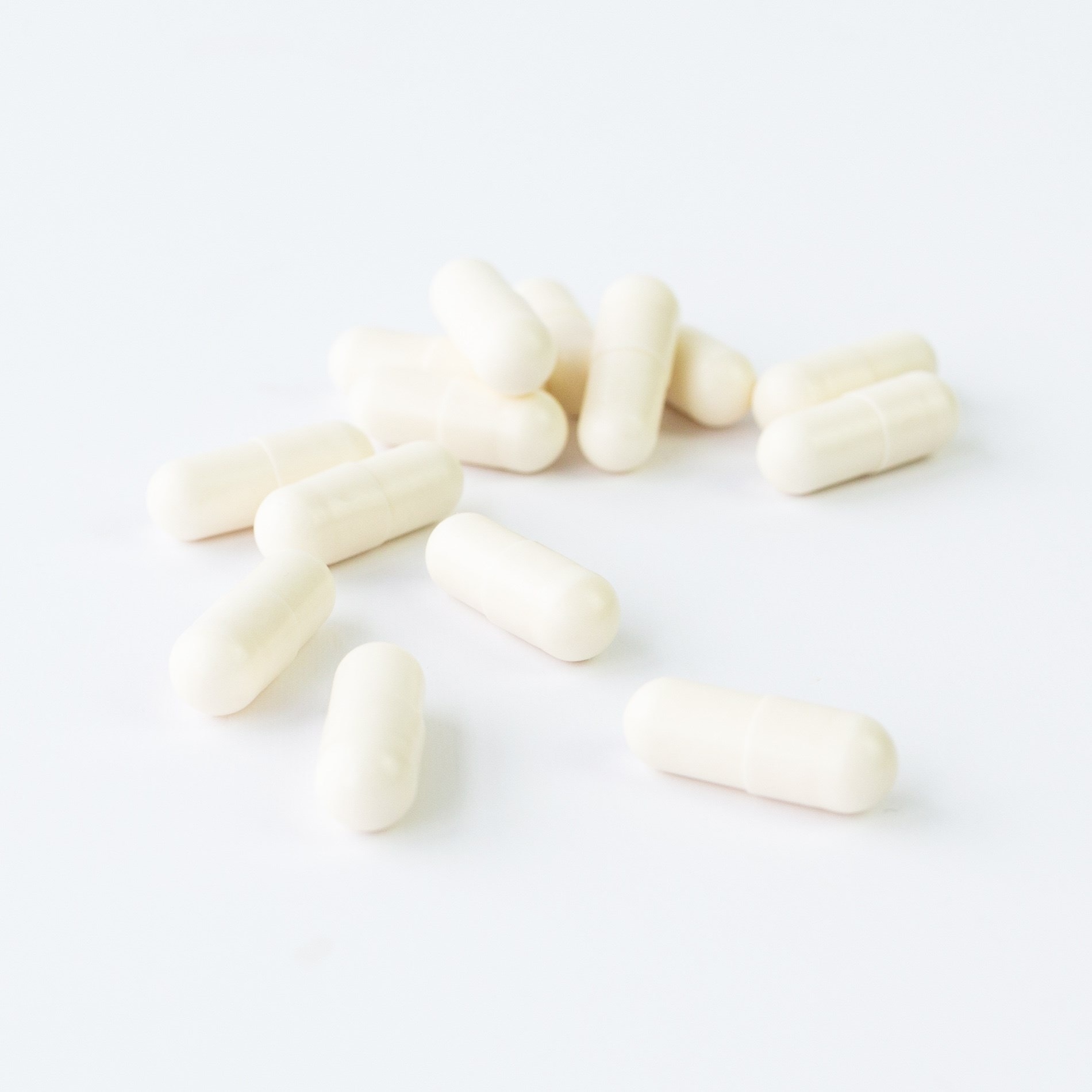New research on Rosell Strains
Exciting new probiotic research has been published, featuring strains from a popular combination of live cultures from the highly regarded Institut Rosell. This extensively-researched probiotic combination includes two Lactobacillus strains, three Bifidobacterium strains and a Lactococcus strain, as well as a prebiotic in the form of fructo-oligosaccharides (FOS) fibres. These strains have all been proven to survive stomach acidity to reach the gut alive. What's more, the two Lactobacillus strains (L. acidophilus Rosell-52 and L. rhamnosus Rosell-11) are some of the most researched probiotic strains in the world, providing a formula well suited to help support daily digestive health and well-being.
Most recent findings
L. acidophilus Rosell-52 and B. longum Rosell-175 - June 2017 - A small pilot study of 10 participants, with diagnosed depressive disorders, aimed to evaluate the effects of L. acidophilus Rosell-52 & B. longum Rosell-175 on depression symptoms, such as low mood, anhedonia (inability to feel pleasure) and sleep disturbance. Participants were assessed using the Montgomery-Asberg depression rating scale to monitor mood symptoms, and sleep was monitored by observing brain activity, heart rate, and eye movement during the night. Participants supplemented with probiotics showed significant improvements in their symptoms, including improved sleep quality, mood score, and the ability to feel pleasure. Read further about the research behind these two strains: Two probiotic strains show more promise for mental health.
Source: Wallace, C. et al (2017) Findings presented at 13th World Congress of Biological Psychiatry. Poster P-05-015, presented June 19, 2017.
New study backs up earlier studies using the same combination of strains
Combination of probiotic strains show potential for stress - October 2010 - Lactobacillus acidophilus Rosell-52 & Bifidobacterium longum Rosell-175 were demonstrated to be beneficial in an innovative new trial linking gut health and stress levels. Published in the British Journal of Nutrition, this clinical trial found that the two probiotic strains are able to cause beneficial psychological effects in humans. 'These results provide further evidence that gut microflora play a role in stress, anxiety and depression' the French scientist reported. Volunteers were administered with either the two probiotic strains, or a placebo, every day for 30 days, and then tested for stress and anxiety levels. The probiotic group showed significant improvement in psychological distress, depression, anger-hostility and anxiety.
Source: Mr Messaoudi et al., 'Assessment of psychotropic-like properties of a probiotic formulation (Lactobacillus helveticus R0052 and Bifidobacterium longum R0175) in rats and human subjects.' British Journal of Nutrition, 10.1017/S0007114510004319
Lactobacillus acidophilus Rosell-52 has been shown to have a favourable impact on sleep in the elderly – 2009 - The study included 29 healthy subjects aged 60-81 years old who were given a Lactobacillus helveticus (this is in fact the same, but re-categorised as Lactobacillus acidophilus Rosell-52) fermented milk drink for 3 weeks. The same were then given a ‘wash out period’ and then given a placebo drink. Sleep quality was measured by means of actigraphy and a sleep questionnaire. It was found that the probiotic drink significantly improved the quality of sleep as well as number of waking hours, whereas the placebo did not. Learn more over on the Probiotics Learning Lab by reading: BBC documentary discusses how gut bacteria may affect our sleep.
Source: Yamamura S, Morishima H, Kumano-go T, et al. (2009) 'The effect of Lactobacillus helveticus fermented milk on sleep and health perception in elderly subjects.' Eur J Nutr 63, 100–105
Probiotics ease stress-related gut problems - January 2008 – Leading probiotic firm, Lallemand, led a double-blind study which randomly assigned either probiotics or placebos to 75 volunteers from 18 to 60 years old. Participants who received probiotics Lactobacillus acidophilus Rosell-52 and Bifidobacterium longum Rosell-175 reported considerable reduction in abdominal pain and nausea or vomiting compared to participants in the control group. Authors of the study at the Institut Rosell commented that this probiotic supplement could act on the intestinal microflora, the epithelial barrier, and the immune system in order to improve gastrointestinal problems induced by stress. Find out more, read: Probiotics for immune health - a look at the research.
Learn more about the research behind Lactobacillus acidophilus Rosell-52 and Lactobacillus rhamnosus Rosell-11 on the Probiotics Database.
For more information on probiotics and wellbeing, see:
NHS recommends probiotics for mental health
For further reading on Rosell strains, see:
Bifidobacterium bifidum Rosell-71 reduces colds in new study
References
- L. Diop, S. Guillou, H. Durand (2008) "Probiotic food supplement reduces stress-induced gastrointestinal symptoms in volunteers: a double-blind, placebo-controlled, randomized trial" Nutrition Research (Elsevier) Volume 28, Issue 1, January 2008, Pages 1-5
- Cazzola, M. et al. (2010) Efficacy of a synbiotic supplementation in the prevention of common diseases in children: a randomized, double-blind, placebo-controlled pilot study; Therapeutic Advances in Respiratory Disease 0(0) pp. 1-8
- Beneficial Microbes on-line, 2017. 'Safety and tolerance of three probiotic strains in healthy infants: a multi-centre randomized, double-blind, placebo controlled trial'. Authors: S.Manzano, J.De Andres, I. Castro, J.M Rodriguez, E. Jimenez and I. Espinosa-Martos.
- Stojkovic, A., & Simovic, M. A. (2016). Clinical trial/experimental study (consort compliant): Optimal time period to achieve the effects on synbiotic-controlled wheezing and respiratory infections in young children. Serbian Journal of Management, 38-43.
Popular Articles
View all General Health articles-
General Health17 Mar 2023


